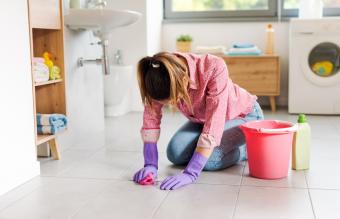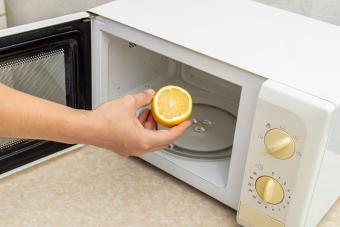
Pollen, dust, pet hair and dander, and even wildfire smoke plague our homes and make it harder to breathe. Want to know how to improve air quality in your home? It is actually a lot easier than you would think. Here are 12 easy steps that will help everyone in your house breathe a big sigh of relief.
Change Your Home Air Filters Regularly

As their name implies, the air filters in our A/C units are great for filtering out dust and debris, if you actually take the time to change them out regularly. Most of these products promise three months of clean air flowing through your home. But if you have pets, live in a dusty environment, or live in a wildfire-prone area, replace this item much sooner. This goes for furnace and heat pump filters as well.
Some of the easiest ways to tell that your filters need to be swapped out are:
- Dust and debris are building up on the metal vents.
- Your home is taking longer to heat or cool.
- The electric bill for the month has increased more than normal.
Another easy way to enhance your indoor air quality is to buy air filters with a higher MERV rating. These block out more particulates and allow you to breathe easier for longer.
Invest in Air Purifiers

Speaking of filters, another great investment is an air purifier. These devices remove an array of irritants from the air, allowing everyone in the room to have fewer indoor allergy issues. Not only that, but they can also help your home smell better.
When looking to purchase one of these machines, here are the top things to consider:
- Make sure it's a HEPA filter: "This type of air filter can theoretically remove at least 99.97% of dust, pollen, mold, bacteria, and any airborne particles with a size of 0.3 microns (µm)," according to the EPA.
- Just like with home air filters, look for a product with an MERV rating that is best suited for your home — a higher rating will better handle certain pollutants. For instance, a MERV 3 is ideal for basic issues like pollen and dust, whereas a MERV 14 is best for wildfire smoke, carbon dust, and even viruses.
- Get one with an activated carbon filter: This will help to remove unwanted smells that some home pollutants can cause.
- Ensure that it covers the square footage of your space: If you want the air purifier to work properly, then you need to purchase the right size machine. Some will cover a single room, whereas others are made for larger spaces, like an apartment or small home.
- Decide what you can afford: Air purifiers are expensive, not only because of the initial cost and because of the maintenance. Just like in your home, you need to replace the filters and carbon liners regularly. This can add up quickly if you use the machine all the times, so ensure that what you choose is in your budget.
- Consider the noise level you want: These machines can also be loud. And while it's white noise, it can drown out things like the television that you may want to hear at a normal volume. But if you have small kids, these can double as fantastic white noise machines to help them sleep.
While expensive, I can't say enough good things about the Medify Air Air Purifiers. As someone with severe allergies who lives in a location that resembles the dust bowl throughout the year, these machines make all the difference. They also remove unwanted smells and have a quiet fan compared to other products we've tried in our home.
Professionally Clean Your Air Ducts

Did you know that it's recommended that you get your home’s air ducts cleaned at least once a year? This is the advice given by the National Air Duct Cleaners Association. Frequency obviously depends on a variety of factors, but by taking the time to clear out your air space, you can improve the air quality in your home, elongate the life of your HVAC system, and even lower your electric bill.
Run Bathroom & Kitchen Exhaust Fans

Most people think that the only purpose of the exhaust fans in their bathrooms and kitchens is to remove unwanted smells, but their main role is actually to get rid of excess moisture. Every time you shower, hand wash dishes, or boil a pot of water, you're releasing steam into the air.
This moisture lands on the surfaces of your home, which can lead to mold and bacteria growth. Both issues can degrade your indoor air quality, making that simple switch a very important one to flip.
Dust & Vacuum Weekly

Your surfaces may look clean to the naked eye, but dust and debris build up quickly. If you have pets, you also have to worry about hair and dander. By vacuuming at least twice a week, you can help to remove these irritants that can easily get into the air as you walk across the room. Don't forget to wipe down surfaces that you use regularly.
For those folks with limited time, robot vacuums can be a great way to keep your floors clean with limited effort. Just empty the bin after each cycle and change out the filter to ensure that it's picking up irritants and not just spreading them around.
Groom Your Pets Often

Humans shed 50 to 100 hairs every single day. Knowing this, can you image how many your furry best friends drop onto your floors? The best way to limit the amount of hair that lands on pretty much every surface in your home is to be vigilant about grooming your pets, especially if you have high-shedding dog and cat breeds.
This doesn't mean that you have to fork out a million bucks at the groomer, though. It just requires you to sit down and brush out your pets while you watch your favorite sitcom. The FURminator Slicker Brush and FURminator Grooming Rake are sound investments that you can use in the comfort of your home, and let me tell you, they can get the job done!
Don't Smoke or Vape Indoors

Tobacco smoke is filled with harmful chemicals, and when you smoke inside, these compounds have nowhere to go. This leads to secondhand smoke sitting stagnant in your home.
Even if you open a window, the Centers for Disease Control and Prevention note that it will not get rid of secondhand smoke. If you need your fix, but also value your indoor air quality, the easiest solution is to simply go outdoors.
Stop Burning Candles

I am a candle fanatic. Literally, Bath and Body Works can just take my money as soon as the fall and Christmas scents hit their shelves. While the smells are simply spectacular, health experts note the burning candles can release hydrocarbons into the air, lowering indoor air quality.
While candles will not cause a significant risk, for those who suffer from respiratory illnesses (both chronic and acute), doctors note that you should probably stray away from these home accents. Air fresheners and essential oil diffusers are also a no-no!
If you are like me and cannot bear to nix this habit, folks at the Cleveland Clinic state that you should at least be mindful of the products you buy. Avoid paraffin wax if possible and aim for more natural, plant-based options like beeswax and soy. You also have the option to make your own candles to control the ingredients.
Another solution is to invest in fragrant houseplants to help disperse a natural scent without putting potential chemicals in the air.
Buy Air-Purifying Plants

If you attended elementary school science class, you probably remember that plants take in carbon dioxide and release oxygen in a process called photosynthesis. This is how they make their food. It is also a proven method for how to improve air quality in the home naturally.
NASA conducted a study that found that when low-light requiring houseplants were placed in small spaces, they were able to reduce the amount of harmful gases in the air. The same research also found that "activated carbon filters containing fans have the capacity for rapidly filtering large volumes of polluted air and should be considered an integral part of any plan using houseplants for solving indoor air pollution problems."
It is important to note that this study was done in a closed, limited environment, which most of us do not live in. This means that you should not expect a few plants to purify all the air in your home, but they can help you breathe a little easier in a small office space or bedroom that is more enclosed.
Some of the top performing houseplants in the study were gerbera daisies, bamboo palms, peace lilies, pot mums, marginata, and Janet Craigs.
Sign up for our newsletter featuring all the latest stories and products we love.
Use Green Cleaning Products

After COVID, many of us have become quite dependent on our disinfectant and sanitizing products in order to stay healthy. However, the chemicals in these products can pollute indoor air. If you want to know how to improve air quality in your home, simply choosing natural cleaning products over ones that contain harmful chemicals is an easy step.
If you want to disinfect your surfaces naturally, white vinegar, hydrogen peroxide, and alcohol are all fine choices. Essential oils have also been shown to have antimicrobial properties. And, of course, good ole soap and hot water can always work wonders!
Prioritize Pest Management

As if roaches were not disgusting enough, these vile creatures produce allergens that "are likely concentrated in their fecal matter and in fragments of their body parts. These tiny particles can become airborne and contaminate the air in your home," according to the American Lung Association. This makes pest management a must for improving your air quality.
You may think that pesticides will also lower the air quality in your home, and you are not wrong. However, if you can use these chemicals to eliminate the problem, this can serve as a long-term solution. Once the roaches are dead, then maintenance is key. This means cleaning regularly, reducing humidity in the home, and using natural pest products to keep them at bay.
Other Ways to Breathe Easy in Your Home

If you really want to know how to improve air quality in your home, the key to success is cleaning problem areas. Deep clean your carpets often, wash your rugs and bedding regularly, wipe off your ceiling fans, and vacuum your soft furniture when you vacuum your floors. Also, invest in allergy covers for your mattresses and replace your pillows every one to two years, even if you wash them regularly. These are simple solutions that can bring large results.







